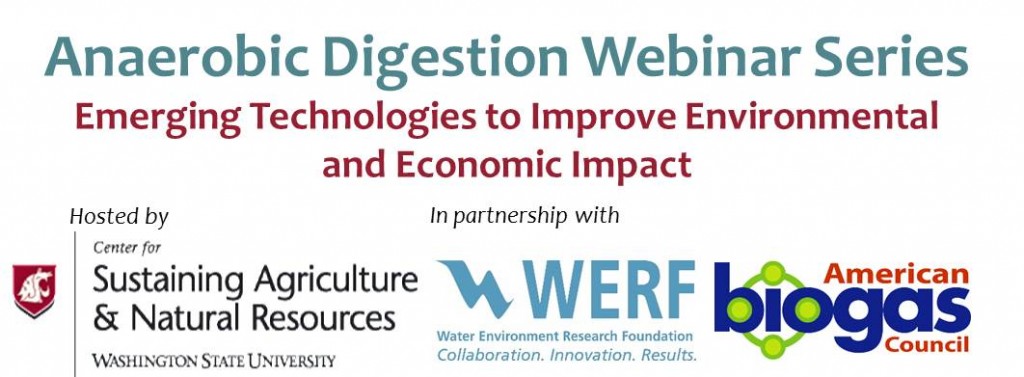A series of five free webinars were offered February through April 2016. Washington State University researchers and their collaborators shared their findings as they strive to quantify the climate, air, water, nutrient and economic impacts of integrating emerging, next-generation technologies within anaerobic digestion systems on U.S. dairies.
Webinar recordings, topics and speaker bios available here
Anaerobic digesters are used worldwide to produce energy and to treat organic materials such as municipal waste, food processing residues, and manures. Government, industry, environmental and agricultural stakeholders are interested in anaerobic digestion (AD) systems because of their multitude of benefits: they can reduce greenhouse gases, improve air quality, protect water quality, recover nutrients, and improve farm economics while generating a steady, predictable supply of renewable energy.
While AD technology has been used for decades on farms and in water recovery facilities in the United States, the adoption of AD technology in the U.S. is limited when compared to European countries. Existing evidence suggests that using biogas systems to address agriculture sector concerns about nutrient loss could improve projects’ returns on investment and AD adoption rates, while generating additional environmental benefits.
Washington State University (WSU) has an extensive research program focused on developing and evaluating technologies that enhance the economic viability of AD systems. Using a bio-refinery systems approach, researchers are working to maximize synergies between technologies, with support from the U.S. Department of Agriculture’s National Institute for Food and Agriculture and from the Water Environment Research Foundation.


